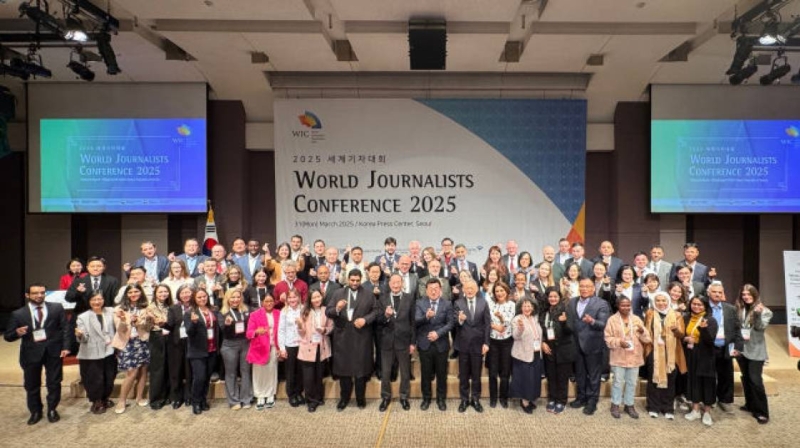Small is beautiful New society is bound to emerge
Small is beautiful New society is bound to emerge
Published: 12:00 am May 04, 2004
Rajeshwar Devkota
Small is beautiful. But it is not so now. Giants are beautiful. Economically and militarily superior ones claim all virtues and play a role of the guardian angel. Since the small ceased to subscribe to such senseless old addictions, overdue conflict seems to be surfacing in different forms. The inner current of politics is same everywhere. The small is neglected.
Man has entered third millennium and is in search of a new course. But the leaders of the establishments are still quite strong to run the society in the old fashion. The leaders may fight among each other for supremacy, but they unite whenever they feel the danger in maintaining the old traditions.
In every society, a sizable number of enlightened young men have come up from the oppressed class. They are neither aware of traditional values nor indebted to pay back anything. In most cases, there has been a struggle between elements of different classes, such as between Christians and Muslims. But even the Muslims fight dividing themselves as Shias and Sunnis. Do they convince anybody, especially the emerging young class? Do they fight to keep up human values? Both are defeated in the end. The emerging class will unite to repulse the parties because older parties are fighting for the sake of state power. The third party is small men’s party.
Now in Nepal, the Maoists are fighting for a new constitution, whereas the other sides are trying to retain the old one. Both of them are a means to further the same worn out legacies of past millenniums. Let the young Maoists of Nepal or that of any part of the world prove themselves revolutionary — what they have seen beyond the old concepts. They are wasting their time and energy at the cost of thousands of precious lives. Do they represent the aspiration of “small’ people, who are appearing to outwit the messengers of the past millenniums? A new society of the small is due to emerge. This emerging class will take the Maoists and other managers of the present system not any different from the other.
Do the Maoists have patience, tolerance and an ability to anticipate such emergence? Their training and background do not permit them to think in such lines. Before Bolsheviks bolstered their totalitarian hold upon Russia, the concept of individual freedom was gaining ground at a slow pace. Naturally in China, the Communists could not think of individual freedom for the sake of fighting a dictatorial regime. While the party system was well-established in the European countries, individual freedom movement existed only lately.
If history is a lesson, in the recent past, two superpowers fought in Afghanistan. Eventually, when they found Taliban an equal threat, they united. Only small Afghanistan suffered. What will the present millennium inherit from the past? It is the achievement in the field of science and technology. The question is: for whose benefit? Has it helped to upgrade human values? For the last four thousand years philosophy, literature and fine arts have continuously enriched human lives and upgraded its value. In this process, time and again, scientific achievements have played a role of the powerful villain to shake the mankind. Man is responsible for destruction, not science. Even then a harassed and an oppressed one may pejoratively term it a bad element.
Anyway it is clearly evident that scientific and technological developments have widened the gap between the haves and the have nots. As we all know, once machines were introduced in Britain, the lives of the workers became more miserable then ever before. This technological advancement created classes distinctly as workers and owners. Thus from the very beginning scientific and technological achievements have been favouring the upper class, or say, have been used by the rich as an instrument of exploitation. To bridge this gap, the concept of “small is beautiful” may help and upgrade human value. It was valid for all ages. But it seems little of it has been realised. Men are desperately trying to preserve the senseless gains for which they waged the great wars, built big empires, invaded other countries, their culture, infringe individual freedom and killed many.
One day small man of this third millennium will let them realise the wrong actions committed by them against humanism. Today’s growing class distinction is an outcome of wildly emerging giant economies and big organisations. This way the league of the small may seem smaller but it will not be so. Free and sensible people feel that all such developments will not upgrade human values. Leaders are not less sensible but they are also not free. All the leaders are under the hold of tight organisations — political, commercial or religious.
The US is taken as an idol of liberty and democracy. The presidency is open for all. But there is such an organisational mechanism that a small man may only dream of any position unless he has got an accommodation within an organisation. It works there as an efficiency of organisation rather than people’s democracy and personal popularity. In principle, humanism should be the ultimate goal of all political systems, governments and social organisations. If we were serious to proceed towards these goals, decentralisation of the national and corporate powers is a precondition.
Devkota is President, National Democratic Party (Nationalist)



